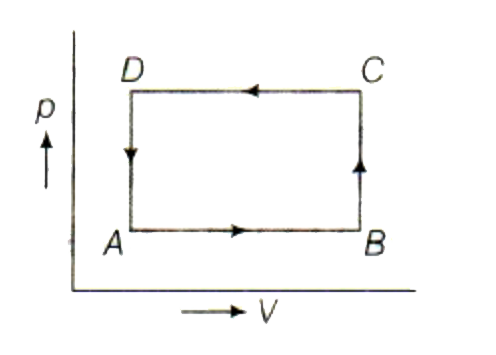Statement I: Spraying of water causes cooling.
Statement II: For an isolated system, surface energy increase on the expense of internal energy.
Statement I is true, statement II is true and Statement II is a correct explanation for Statement I.
Statement I is true, Statement II is true and Statement II is NOT the correct explanation for Statement I.
Statement I is true, Statement II is false.
Statement I is false, Statement II is true.
The correct Answer is:A
On spraying, surface area increases and hence surface energy, this increase in surface energy is on the expense of decrease in internal energy and hence temperature decreases.
Topper's Solved these Questions
- PROPERTIES OF SOLIDS AND FLUIDSBOOK - CENGAGE PHYSICS ENGLISHCHAPTER - PROPERTIES OF SOLIDS AND FLUIDSEXERCISE - Linked Comprehension
30 Videos
- PROPERTIES OF SOLIDS AND FLUIDSBOOK - CENGAGE PHYSICS ENGLISHCHAPTER - PROPERTIES OF SOLIDS AND FLUIDSEXERCISE - Integer
6 Videos
- PROPERTIES OF SOLIDS AND FLUIDSBOOK - CENGAGE PHYSICS ENGLISHCHAPTER - PROPERTIES OF SOLIDS AND FLUIDSEXERCISE - Multiple Correct
17 Videos
- NEWTON'S LAWS OF MOTION 2BOOK - CENGAGE PHYSICS ENGLISHCHAPTER - NEWTON'S LAWS OF MOTION 2EXERCISE - Integer type
1 Videos
- RIGID BODY DYNAMICS 1BOOK - CENGAGE PHYSICS ENGLISHCHAPTER - RIGID BODY DYNAMICS 1EXERCISE - Integer
11 Videos
Similar Questions
Choose the correct statement for an isolated system.

View SolutionWhen is the heat supplied to a system equal to the increase in its internal energy?
View SolutionIn the S.I. system, the unit of energy is-
View SolutionIn an isochoric process the increase in internal energy is
View SolutionStatement I: AIDS is a disorder caused by HIV.
Statement II: HIV is a virus that damages immune system of its host.
View SolutionDefine internal energy of a system.
View SolutionStatement-1 : When 1gm of water at 100∘C is converted to steam at 100∘C, the internal energy of the system doesn't change.
Statement-2 : For dU=nCvdT, if temperature of system remains constant, then dU=0 i.e. internal energy remains constant.
View SolutionStatement I: Surface tension has the same units as fore gradient.
Statement II: Surface tension is the force gradient along the surface of liquid.
View SolutionPredict the change in internal energy for an isolated system at constant volume.
View SolutionThe formation of a chemical involves an increase in the potential energy of the system.
View Solution
